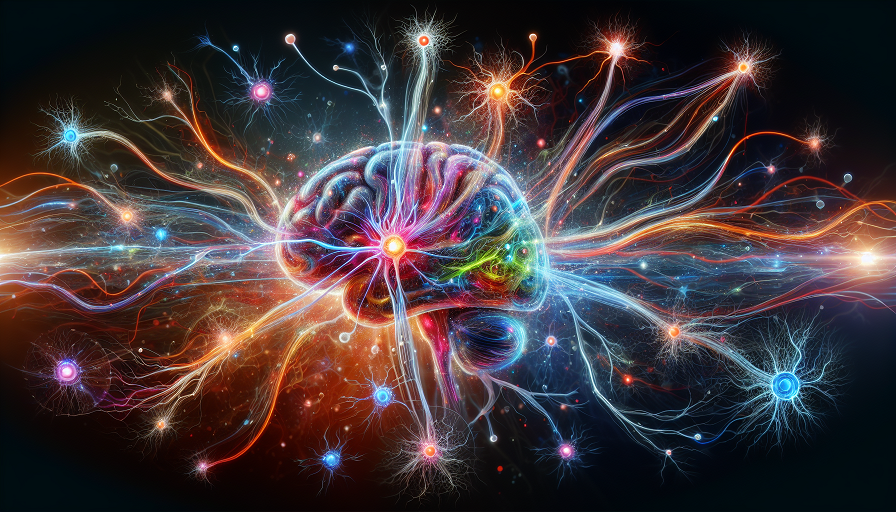
Imagine this: every year, you pick a skill you’ve always wanted to master—playing the guitar, coding an app, or maybe even learning how to bake sourdough bread. Each time you challenge yourself, you’re not just adding a new notch to your belt of abilities. You’re actively rewiring your brain, keeping it sharp, adaptable, and resilient. Learning a new skill every year isn’t just a fun hobby; it’s a strategy for lifelong cognitive health.
Contents
Boosting Neuroplasticity Through Continuous Learning
Neuroplasticity is the brain’s ability to rewire itself by forming new neural connections. It’s the secret sauce behind how we learn and adapt. Every time you acquire a new skill, you’re giving your brain a neuroplasticity workout.
How Learning Creates New Pathways
When you learn something new, your brain builds connections between neurons. For example, picking up a musical instrument strengthens pathways related to auditory processing, motor control, and memory. This increased connectivity enhances your brain’s overall efficiency.
Slowing Cognitive Decline
Research shows that engaging in mentally stimulating activities helps delay the onset of cognitive decline. Learning a language or mastering a craft keeps your mind active, reducing your risk of conditions like dementia.
Real-Life Impact
Take Marie, a retired teacher who decided to learn Italian at 65. Not only did she experience an improvement in memory, but she also found herself more alert and engaged in daily life. Neuroplasticity doesn’t age—it’s always ready to be tapped.
Building Confidence and Resilience
Tackling a new skill every year pushes you out of your comfort zone. It’s not always easy, but the rewards—both mental and emotional—are worth the effort.
Embracing the Learning Curve
The early stages of learning can be awkward. Whether you’re fumbling through your first yoga pose or burning your first soufflé, you’re teaching yourself resilience. Overcoming these initial struggles boosts your confidence and mental fortitude.
Celebrating Small Wins
Success doesn’t have to mean mastery. Learning to play a simple tune on the piano or coding a basic webpage can bring immense satisfaction. These small victories motivate you to keep going and tackle other challenges.
Strengthening Emotional Health
Accomplishing something new releases dopamine, the brain’s “feel-good” chemical. This positive reinforcement not only enhances your mood but also creates a loop where you’re eager to learn and achieve more.
Enhancing Creativity and Problem-Solving Skills
Learning new skills isn’t just about acquiring knowledge—it’s about thinking in new ways. Each skill adds tools to your mental toolkit, enabling you to approach problems creatively and from different angles.
Cross-Pollination of Ideas
Skills often overlap in unexpected ways. For example, learning photography might teach you about lighting and composition, which can improve your graphic design projects. This cross-pollination enhances your ability to innovate.
Breaking Mental Ruts
Routines can stifle creativity. Challenging yourself to learn something outside your comfort zone—like salsa dancing or woodworking—forces your brain to think differently and break free from repetitive thought patterns.
Real-Life Application
Consider an entrepreneur who takes up improv classes to improve public speaking. The quick thinking and adaptability required in improv translate to more effective communication and problem-solving during business negotiations.
Strengthening Memory and Focus
Mastering a new skill demands sustained attention and active recall, both of which are crucial for strengthening memory and focus.
Engaging Working Memory
Skills like learning to play chess or knitting a pattern require you to hold and manipulate information in your mind—whether it’s planning your next move or remembering stitch counts. This constant engagement enhances your working memory.
Improving Long-Term Recall
The act of practicing and revisiting a skill reinforces neural pathways, improving your ability to recall information. For example, language learners benefit from repeating vocabulary over time, solidifying their grasp of the words.
Boosting Concentration
Learning demands focus. Whether it’s reading sheet music or troubleshooting a coding error, you train your brain to sustain attention for longer periods, a skill that spills over into other aspects of life.
Fostering Social Connections and Emotional Well-Being
Many skills are social by nature, offering opportunities to connect with others and enhance emotional well-being. Even solo skills can lead to interactions that enrich your life.
Joining Communities
Skills like cooking, painting, or playing sports often involve group activities or classes. These settings foster a sense of belonging and introduce you to like-minded individuals who share your interests.
Sharing Your Knowledge
Teaching what you’ve learned to others deepens your understanding and strengthens bonds. For instance, sharing your photography tips with friends not only reinforces your skills but also brings joy to others.
Real-Life Example
Think about Sam, who learned to play guitar and joined a local jam session. Not only did he improve his musical skills, but he also made lifelong friends and boosted his confidence in social settings.
Optimizing Your Brain with Nootropics
While learning a new skill challenges the brain, you can support this effort with nootropics. These cognitive enhancers can improve focus, memory, and mental clarity, helping you stay sharp as you tackle new challenges.
How Nootropics Work
Nootropics like ginkgo biloba and lion’s mane mushroom promote brain health by improving blood flow and supporting neural regeneration. They’re particularly beneficial for enhancing cognitive performance during mentally demanding tasks.
Integrating Nootropics into Your Routine
Take nootropics alongside a balanced diet and regular exercise for maximum effectiveness. For example, pairing nootropics with a morning workout can amplify their effects, preparing you for a day of focused learning.
The Power of Yearly Skill Acquisition
Adopting the habit of learning a new skill each year is a simple yet transformative practice. It keeps your brain sharp, boosts confidence, and enhances creativity, memory, and social connections. Whether it’s mastering a musical instrument, trying a new sport, or diving into coding, each skill adds to your mental toolkit, helping you thrive in every aspect of life. So, what skill will you take on this year? Your brain is ready for the challenge.

